Is Potty Training at Night Worth It?
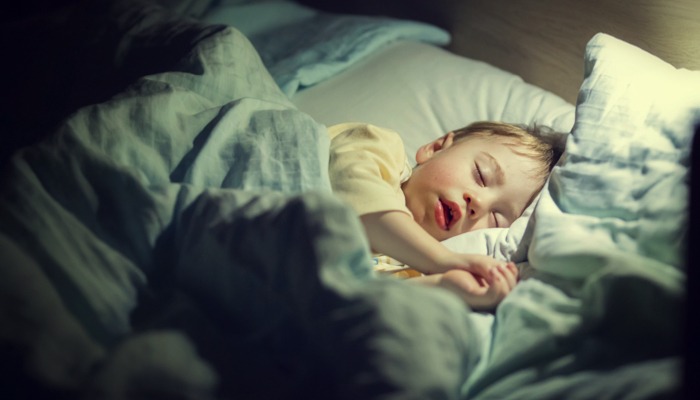
- Children are likely to stay dry at night on their own by age 7.
- Wait for some key signs of readiness before attempting nighttime potty training.
- A good time to start nighttime training is 6 months after daytime potty training.
Do you have a toddler who’s excited to get out of pull-ups and into big kid underwear? Or are you hoping to save money by ditching diapers? Potty training at night might be worth it for you. Don’t worry—it doesn’t have to be as hard as daytime potty training!
Do I Really Need to Nighttime Potty Train?
After completing daytime potty training, tackling overnight potty training might be the last thing you want to do. We have good news: If you really can’t face it, you don’t have to.
As your child grows, so does their bladder. If you wait long enough, their bladder will be physically able to hold in their pee until morning. You’ll find that their pull-ups or diapers are staying dry, and they will night train themselves.
However, your child may not reach this physical milestone until they’re 5 or even 7 years old. You may not like buying diapers until then or your child might want to start wearing big kid underwear full time. In this case, nighttime potty training can help to get them there sooner.
Is Potty Training at Night Even Possible?
Our brains produce antidiuretic hormone (ADH) at night, which slows the production of urine. Very young children produce less ADH so have to wake to pee. If your child is peeing in the night this may be the reason.
However, it doesn’t have to stop you from nighttime potty training. It just means your child will need to visit the bathroom at night and then go back to sleep.
What’s the Difference Between Daytime and Nighttime Potty Training?
When you started potty training you might not have given much thought to nighttime. Getting through the days of cleaning couches and carpets was enough! You may have been hoping that once your child mastered the day, the night would follow. Unfortunately, this is rarely the case.
The main difference is that during daytime potty training your child is awake. At nighttime, they’re not. Your child’s bladder not only has to tell their brain that it’s time to go, it also has to wake them up. If you’ve ever tried to wake your child on a car journey, when an accidental nap would ruin bedtime, you’ll know how hard this is.
Another hurdle is that your daytime potty training methods won’t work at night. You can’t have them drinking water all evening or give them candy at 2 a.m.
What Should I Do if My Potty Trained Child is Still Wetting the Bed at Night?
First of all, don’t worry. It’s completely normal for nighttime potty training to happen after daytime training. It’s a good idea to keep your child in a diaper or pull-ups at night for at least 6 months after daytime potty training.
If your child is still not dry at night by age 7, talk to their pediatrician. They’ll want to check that everything’s okay and will have some great strategies to try. Keep in mind that potty training your special needs child is likely to take longer.
When Should I Start Nighttime Potty Training?
Wait to start nighttime potty training until your child is showing the following signs of being developmentally ready:
- They use the potty or toilet training seat during the day.
- They can walk to the toilet or potty.
- They’re in a toddler or big kid bed, so they can get themselves up and to the bathroom.
- Their diapers or pull-ups are dry by morning for a few nights in a row.
At What Age Should I Start Potty Training My Child at Night?
Nighttime training is more about your child’s development than age. If they’ve been successfully daytime trained and have had dry diapers at night you could start as young as 2 years old. However, around 50% of 3-year-olds and 20% of 5-year-olds experience bedwetting once a month. So don’t panic if your child isn’t ready yet.
How Long Does Nighttime Potty Training Take?
Nighttime potty training can take a day, a week, or much longer. It depends on what’s causing your child to be wetting at night. A study by the American Academy of Pediatrics followed the toilet training journey of 1170 children from age 2. It found the average time taken to night train was 9-months. 80.3% were dry at night by age 3.
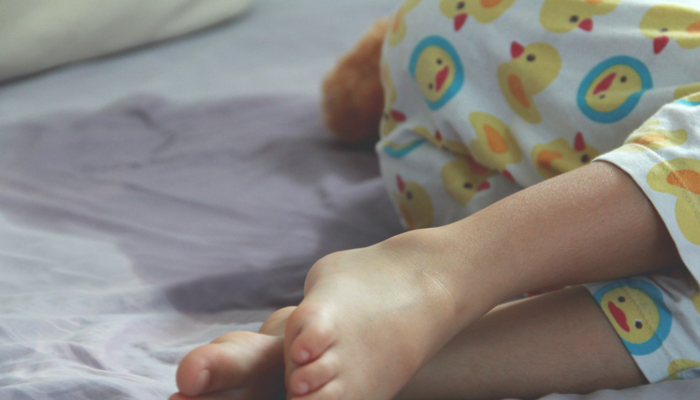
Why is My Child Wetting at Night?
If your child is having accidents at night, it could be that they don’t like getting up, prefer going in their diaper, or are having too many liquids before bed. In these cases, you will probably need to work on night training.
On the other hand, your toddler might not be at potty training age. Their bladder could be too small, the signals to the brain too weak to wake them, or they could be sleeping too deeply. These are all common issues up until age 5 and signs that night training should be delayed.
Do Pull-Ups Encourage Bedwetting?
Diapers and pull-ups are great inventions that have saved millions of mattresses and sheets worldwide. But for some, they’re more of a hindrance than a help.
If your little one needs to go pee at night what should they do? Get out of their warm bed and walk to the bathroom in the dark? Or, stay where they are and pee in their pull-ups? Of course, they’ll choose the easier and warmer option. In this case, night potty training is the solution.
How Do I Potty Train My Child at Night?
Start by daytime training your toddler. Strategies like the Oh Crap! method, 3-day potty training, or naked potty training are great options. If you’re about to start the nighttime potty training process, preparation is key.
- Double wrap the bed. Make your child’s bed up with a waterproof layer, a sheet, a second waterproof layer, and a second sheet. This way, if they wet the bed, it’s easy to deal with. Simply remove the top two layers of sheets and you’ll have a clean, ready-made bed waiting underneath.
- Limit liquids before bed. Try to avoid drinks after their evening meal. If your child is especially thirsty near bedtime then do let them drink, but try to give small quantities.
- Ditch the juice. Juice and sugary drinks can be irritating and can bring more water into the bladder. Offer water in the evenings instead.
- Go potty before bed. Make using the potty part of the bedtime routine. It should be the last thing your little one does before they get into bed.
These simple steps might be enough to achieve nighttime potty training success. However, if your little one is still having accidents, don’t worry. There are still more nighttime potty training tips to try.
- Keep a potty in the room. Keep a potty close to your child’s bed. A portable or travel potty works great for this, since it means they won’t have to go out to the bathroom if they’re scared or cold.
- Try a bedwetting alarm. These are moisture sensors that will sound if your child wets the bed. Your child might find it hard to recognize the signals that their bladder is full when they’re asleep. The alarm trains their brain to recognize the need to go sooner by waking them as soon as they’ve had an accident. Studies have shown these to be effective in 50% of cases.
- Do a “dream pee.” This is a tactic only for the toughest of parents who can cope without a full night’s sleep. Some recommend setting an alarm during the night and taking your child to use the potty. This will help if they’re not able to hold the amount of pee produced overnight. With any luck, they’ll get used to waking at this time and start taking themselves to the bathroom. Only try this if your child is good at going back to sleep!
Is it Okay to Stop Nighttime Potty Training if It’s Not Working?
If you’ve started nighttime training but your child doesn’t seem ready after all, it’s okay to take a break. Just like during the day, nighttime potty training requires calm and confidence building. Frequent bedwetting due to starting too soon could lead your child to feel frustrated or ashamed, which you want to avoid.
Try again when you’re both ready and remember that accidents will happen. Bedwetting is frustrating, but you’re well on your way to potty training success.

Related Posts
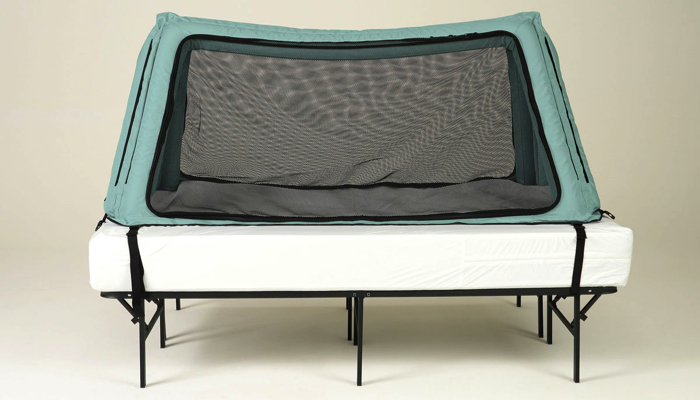
Sleep, Special Needs
Safe Place Bedding Travel Bed Review
Traveling with a special needs child can be stressful! Having a safe, durable, and easy to use travel bed can make traveling so much easier!
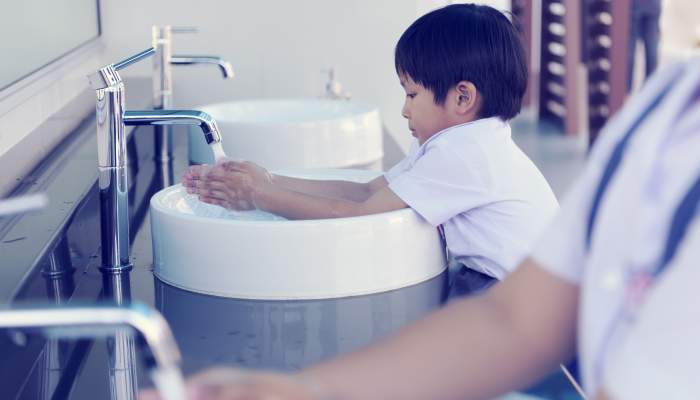
IEPs, Potty Training
7 Sample Toileting IEP Goals
Toileting IEP goals should address the specific needs and abilities of each child. Be flexible and patient as your child works on their toileting skills.
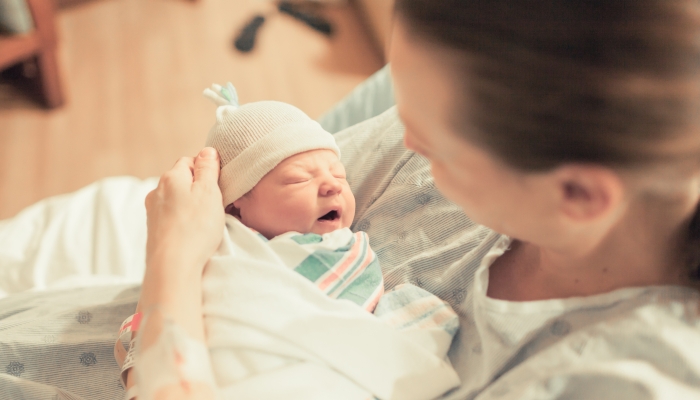
Sleep, Special Needs
Sleep Regimen for Premature Babies: Special Considerations
It can take premature babies much longer than their full-term peers to sleep for long stretches. A preemie sleep schedule may encourage better sleep.